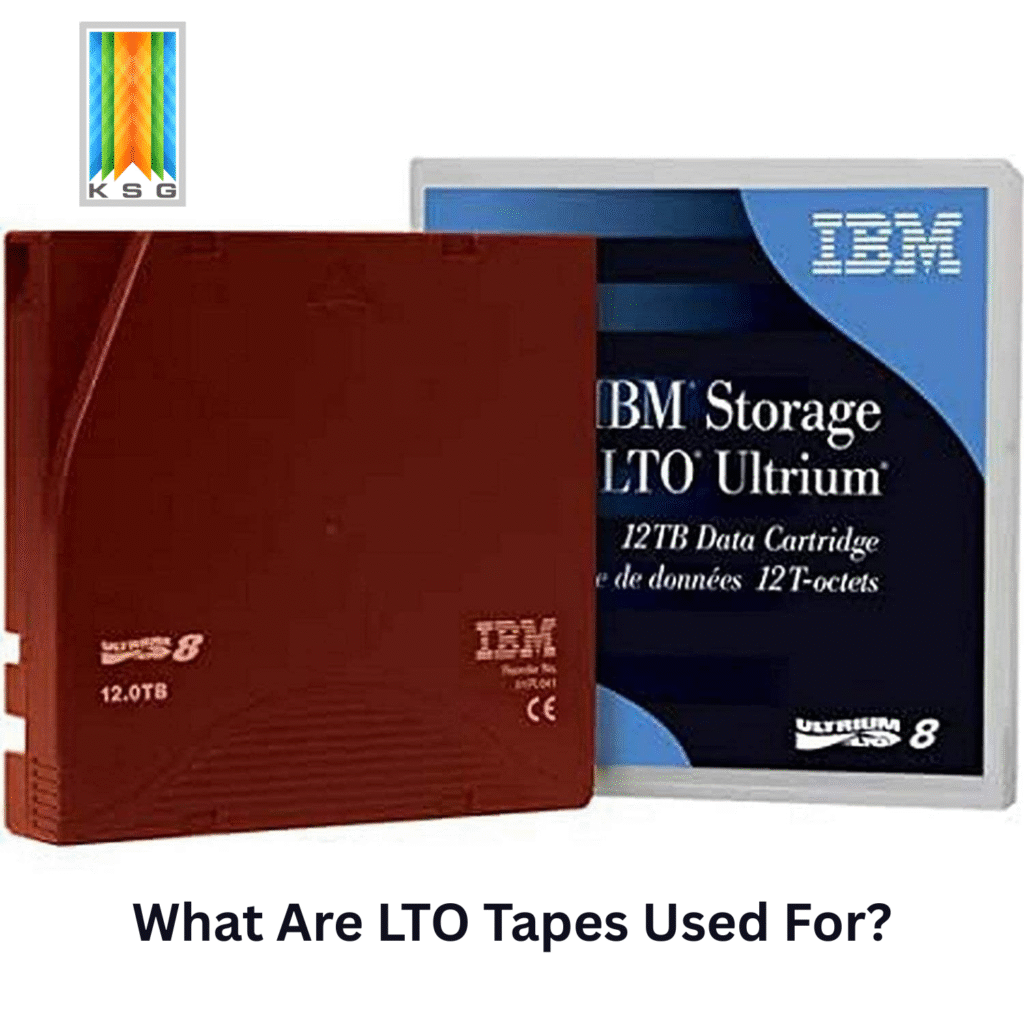In the contemporary digital world, information is among the most valuable commodities. All organizations, whether small or large, have massive amounts of data being generated and stored in large quantities day after day. As cloud storage and online systems increase, it is believed that the previous form of storage process is becoming a thing of the past. However, the LTO tapes used storage remains one of the technologies that have been crucial in data management.
LTO is an abbreviation for Linear Tape-Open. It is a technique in data storage using magnetic tape that is used to achieve high-capacity, secure, and cost-effective storage. Having been developed over the years, LTO tapes are one of the most reliable backup options. Let us discuss the application of LTO tape in the present and their current significance.
Long-Term Archiving
Long-term archiving of information is also one of the major applications of LTO tapes. Increasingly, a good number of organizations have to hold data for years, even decades. Healthcare, legal, finance, and research industries are just some of the industries that produce such data that needs to be maintained, as firms and other parties may require it previously. The ideal choice for such a purpose is LTO tapes, which are reliable and tough.
LTO tapes have the capability of storing data for decades when they are well stored. This puts them in a good position when it comes to archiving key records, historical, and any information that might be required to be tapped later.
Backup and Disaster Recovery
The other significant application of LTO tapes is in disaster recovery and backup, which involves using the tapes. Loss of critical information through failures of the system, cyberattacks, and natural disasters cannot be an issue for businesses. To maintain a copy of their data when offline and offsite, LTO tape permits organizations to store their information.
There is one proper advantage to offline storage. Underground tapes are not linked to the internet, hence they are not vulnerable to cybercrimes like hacking or ransomware threats. The business can recover its systems in case of disaster by using the information that was stored on these tapes. This renders them an important component of disaster rescue strategy.
Cost-Effective Storage
LTO tapes have one of the lowest costs/terabyte ratios among most of the other storage options. It is particularly useful in those organizations that have high rates of data production from time to time. Disks or storage systems (such as the cloud) might demand electricity, cooling, and management expenses, which are high to maintain compared to HP LTO 6 tape.
With LTO tapes, information can be stored safely without using power when idle. This cuts down the cost of operation and energy consumption. In cases where businesses require an affordable method of balancing cost and integrity, LTO is still a system that is cost-efficient.
Nearline Storage
Nearline storage is also done using LTO tapes. This kind of storage is not connected online at all times, but can be connected when the necessity arises. This is frequently utilized by businesses that contain information that is not needed on a day-to-day basis but must be available within a justifiable period.
As an illustration, media businesses that have older projects transfer deposited video files to tapes. The tapes can be loaded and data retrieved in instances when such files are required again. It is a method that will conserve space and cost, and yet contain data that is reachable.
Data Transfer and Offloading
LTO tapes are commonly used to trans- and offload raw information in industries where vast quantities of data used in their operations are generated. Good examples would be video production, oil and gas exploration, and even scientific research. That is because these domains generate data in petabytes. LTO tapes offer a secure yet useful option to transfer and store a huge amount of files.
Because of the ability to store several terabytes in a single tape, bulk transfers will become commonplace without congesting online systems. This qualifies LTO as a reliable tool for large-scale industries.
Regulatory Compliance
Lots of industries have regulations that postulate the need to save data in long-term storage in a safe and non-modifiable form. An example of this is the financial institution, in that the transactions made by a financial institution should be kept, and also in hospitals, the patients should be kept on record over a long duration of time.
IBM LTO 7 tape also allow the use of write-once, read-many (WORM) technology, which means that once information is written on the drive, it can never be changed. This assists organizations in fulfilling the compliance requirements and also maintains the integrity of data.
Benefits of LTO Tapes
- Durability: It can hold for decades when stored properly.
- Security: Protects information against cyber attacks.
- Scalability: Each new generation offers higher capacity and speed.
- Energy Efficiency: Consumes no power when idle.
- Portability: Easy to store, move, and manage.
Real-World Applications
- Media and Entertainment: Receiving video records, films, and raw camera records.
- Healthcare: Electronic storage of scans, medical images, and the history of patients.
- Finance: Audit logs and transaction records are stored.
- Government and Legal: Storing compliance documents and laws.
- Research: Secrecy of experimental data, climatic charts, or satellite photographs.
Conclusion
The LTO tapes still hold a crucial position in data handling, regardless of the expansion and development of cloud and modern storage systems. They are reliable since they are long-lasting, safe, and also economical. Organizing and compliance with large data copies, as well as for disaster recovery, LTO tapes in many situations are a solution that cannot be matched regarding long-term storage purposes.
LTO tapes are not merely an option for organizations that care about data protection and are not costly at all.
